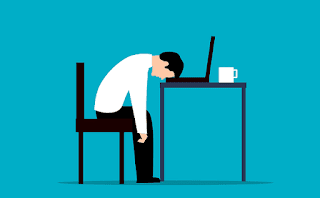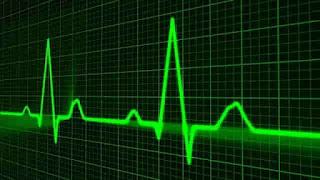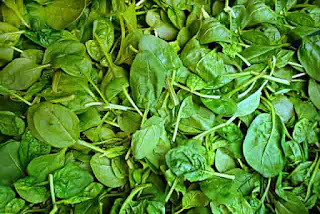The Importance of Potassium on our Health
we're going to look at potassium like it has never
been discussed before. why is it important for us? what happens when we're
short on potassium? how to make up for the shortage of potassium? all of this
and much more are in this article. if you have taken your chemistry lab seriously
you may remember your teacher mentioning something about an element called
potassium with the symbol k.
anyways this mineral is super important for our
bodies and it performs many key roles inside our bodies. let's look at them one
by one. what exactly is potassium we thought you might have the question so
before we jump into the details of the roles that potassium plays inside our bodies.
First let's try to understand what it is ever heard of the term "Electrolyte" the
name gives it away it has something to do with electricity.
when you consume salt or sodium chloride it gets
converted into sodium and chloride. this fluid of ions as they call them is
highly conductive and so are the individual minerals sodium and chloride. potassium
is one such conducting mineral and is utilized in conducting electric signals
inside our body.
but unlike other minerals it is required by our
bodies in huge amounts. around four thousand milligrams to be exact. why is
potassium acquired in such huge quantities? for that you'll have to understand
where exactly potassium is mostly utilized in the body. there is a something and that is called as a sodium potassium pump.
there are small pumps made of sodium and potassium present
on the surface of cells. the main job of these pumps is to act as electricity
generators. they produce electric signals that allow different nutrients like
glucose, amino acids and calcium to pass through the cells. hence it opens up
the path for nutrient exchange to take place inside the cells.
so the body needs these pumps to effectively utilize the nutrients from food about 1/3rd of the energy from our food goes towards the functioning of these pumps. these pumps are present everywhere inside our bodies including muscles and the nervous system. if we talk about numbers then the number of these pumps inside our bodies is between 800000 to 30 million.
since potassium is essential for the building and maintenance of these pumps hence potassium is required in huge quantities. there is another kind of pump also called the hydrogen potassium pump. that is responsible for creating stomach acid for the digestion of food. here again potassium seems to be running the show. what happens when you fall short of the required potassium intake. well! you face many problems.
let's look at a few of the troubles that potassium deficiency can cause
No 1. Lack of energy
the food that we eat has energy that energy is then
utilized by our bodies to perform different tasks. but how exactly does the food
convert into energy the answer is potassium. the sodium potassium pumps as we
said produce an electric charge that allowed different nutrients to pass through
the cells. the cells then produce energy.
if sufficient
potassium is not available the nutrients cannot pass and the cells cannot make
energy that explains the feeling of fatigue due to a lack of potassium.
No 2. Brain fog
potassium is essential for normal brain function not
only are the nerve signals dependent on potassium but the brain itself slows down
due to the lack of potassium and what happens when our brains don't function
like they're supposed to we experience a phenomenon called brain fog.
brain fog is extremely frustrating you lose your
train of thought you forget about stuff and you can't concentrate on things for
long. it can affect your day-to-day life and kill your productivity at work. this
brain fog should be fixed pretty easily increasing the amount of potassium in
the diet is sufficient to solve this issue most of the time.
No 3. Muscle cramps
another problem is muscle spasms. the real culprit
behind these cramps is calcium. since it is responsible for the relaxation of
muscles after contraction but how much calcium enters our cells is regulated by
potassium. the sodium potassium pump the muscles work by contraction and
expansion.
when everything is fine the potassium is available
the muscles can contract and expand without any problems. but when the
potassium level drops suddenly there isn't much calcium flowing in and so the
muscles get tangled in a contracted state and you feel cramps.
No 4. Irregular heart
do you know what is common between your sweet heart
and deficiency of potassium. these both can makes your heart skip a beat. as we said potassium
is an important electrolyte. it's important for the conduction of electrical
signals.
hence it is important for nerve signals too you
won't use a very thin wire for electricity conduction right for starters it
would burn out. but in the case of our nervous system the signals would become
weak or may not even reach in some instances.
if potassium is not sufficient this phenomenon is
associated with an irregular heart beat and heart skipping beats. irregular
heartbeat means the heart isn't functioning properly. that means the organs and
tissues aren't receiving adequate blood. meaning you could die because of a shortage
of potassium.
No 5. Fluid retention
our bodies are 60% water, 40% of this water is inside our cells and the remaining is outside fluid namely blood and spinal fluid. the concentration of electrolytes affects the concentration of water in the cells. potassium is the main component of the fluids found inside the cells and sodium is the main actor of the outside fluid.
the concentration of both of these electrolytes is
almost similar. what happens when the concentration of potassium drops. the
sodium concentration increases relative to potassium. this makes the outside
fluid more water thirsty than the inside fluid. it is easy to guess what
happens next you guessed it our cells shrink. they lose water by the way this
phenomena is called osmosis.
this is the reason behind fluid retention now that
you know how important it is to consume enough potassium. your next question
must be how should i go about increasing my potassium intake. don't worry we've
got you covered. let's look at five potassium-rich foods which can help you
meet your daily potassium need in a mouth-watering way.
No 1. banana
you knew it was coming didn't you whenever
potassium is mentioned banana comes up naturally. commonly known for its potassium quantities. a single banana
has around 422 milligrams of potassium that's about 10% of the recommended daily
intake or RDI in short.
other than potassium it is also rich in magnesium, vitamin b 6 and vitamin c. its health benefits include strengthening the nervous system helping weight loss and reducing swelling.
No 2. Avocado
people make
the mistake of considering bananas as the only source of potassium that's why
so many people suffer from the deficiency of potassium. i mean you can only eat
so many bananas. the avocado is also one of the best source of potassium.
they are commonly known in the weight loss
community as a source of healthy fats. there are large reserves of potassium and
avocados. one full avocado has around 950 milligrams of potassium around 20
percent of the RDI.
No 3. beans
beans are underestimated a lot they are a source of
many essential nutrients and they are easy to get too. beans is a broader
category that includes white beans such as peas, Cellini beans and lima beans
and black beans aka the turtle beans.
the potassium content in these beans is off the charts. a cup of white beans has around 829 milligrams of potassium which is 18 of RDI and a couple black beans has around 611 milligrams of potassium 13 of the RDI. not only potassium but these beans are also a great source of vitamin b, iron and protein.
No 4. Spinach
whenever we think of spinach only one thing comes to our minds no it's not potassium. let's be real here. we think about Popeye the sailor man. the great show was our childhood companion and we had some great times due to this show. the point is even our man Popeye knew the importance of spinach.
spinach is a source of many nutrients and minerals
including potassium. one cup of frozen spinach has around 540 milligrams of
potassium or 12 percent of RDI. while three cups of raw spinach has around 558
milligrams of potassium. other nutrients present in spinach include vitamin a,
vitamin k and magnesium.
No 5. potatoes
potato is a staple food in many countries around
the world not only is it delicious but it has also been reported to be the best
dietary source of potassium. in terms of numbers a small baked potato contains
738 milligrams of potassium 16 of the RDI value. however it is important to
note that the potassium content is not constant in all the varieties of potatoes.
the potassium content depends on the type of soil and also on the way the potato is eaten. potassium is the most important electrolyte in our bodies and it is required in large quantities for normal body functions.
that explains the exponential increase in the list of our problems. most people are unaware of the sources of potassium other than bananas. but now you know five great sources of potassium to make your daily requirements include these potassium-rich foods in your diet and see the magic.







